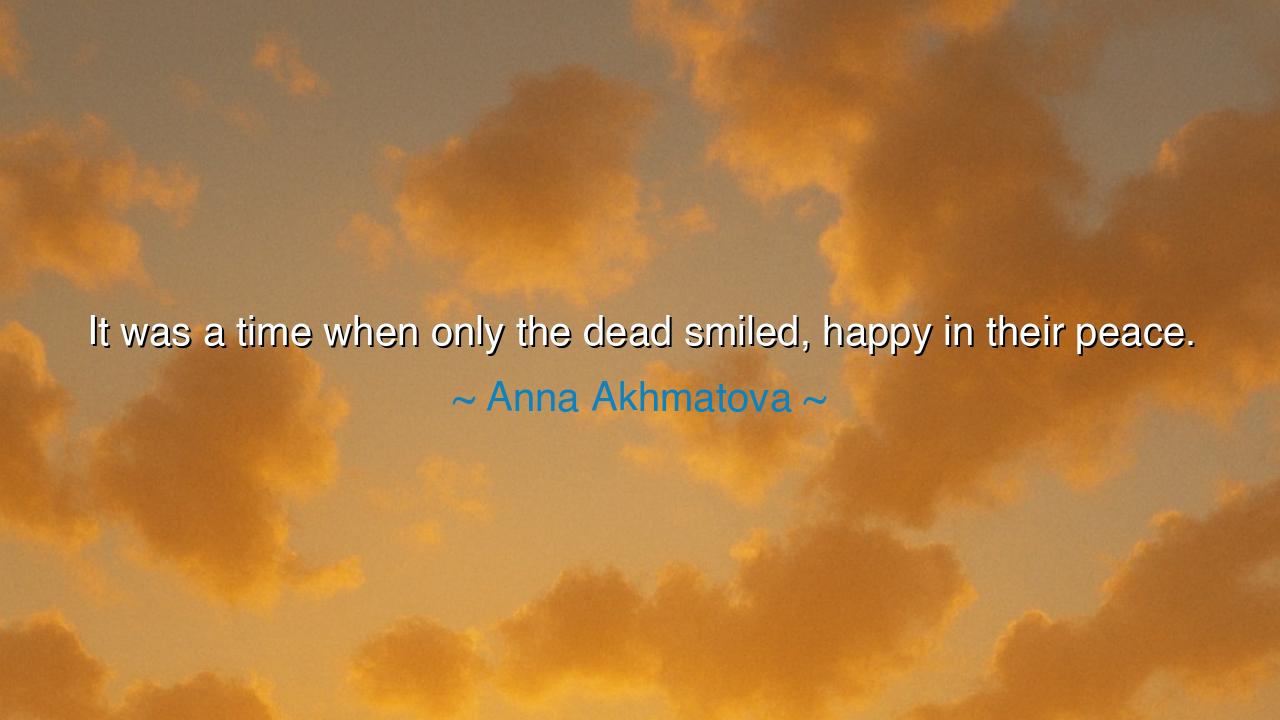
It was a time when only the dead smiled, happy in their peace.






“It was a time when only the dead smiled, happy in their peace.” Thus wrote Anna Akhmatova, the great poetess of Russia, whose words were forged in the furnace of grief. These are not the words of despair alone, but the song of one who stood amid ruins and still bore witness. Her line speaks of an age when suffering weighed upon the living so heavily that only the dead could rest. In it lives the memory of a people crushed by fear, their voices stifled by the hand of tyranny. The dead smiled, not in mockery, but in the silence of freedom—the one peace that could not be stolen from them.
To understand this utterance, one must look upon the dark years of Akhmatova’s life—years of terror beneath Stalin’s shadow. The prisons overflowed, the air thickened with whispers and dread. Friends vanished in the night; husbands and sons were taken, never to return. Akhmatova herself stood in the endless prison lines of Leningrad, among mothers and widows, waiting to learn the fates of those they loved. From this endless vigil came her immortal work, Requiem, from which this line was born. It is not the poetry of rebellion






AAdministratorAdministrator
Welcome, honored guests. Please leave a comment, we will respond soon